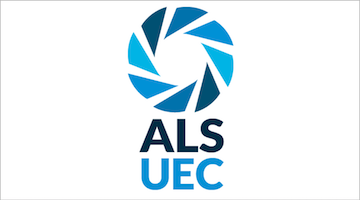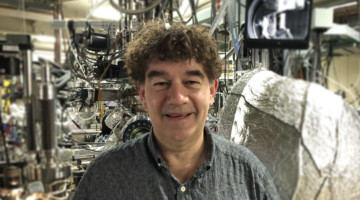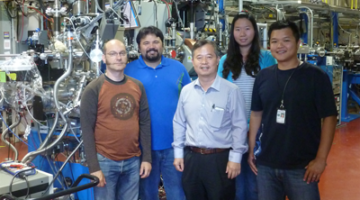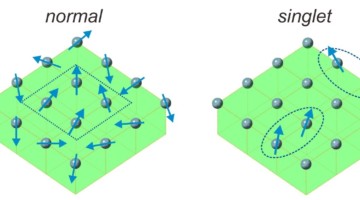Fanny Rodolakis, the chair of the Users’ Executive Committee (UEC) for 2019, reports on the most recent UEC meeting and calls for speaker suggestions for this year’s User Meeting. Read more »
ALS in the News (April 2019)
- Electric Skyrmions Charge Ahead for Next-Generation Data Storage
- Cometary Surprise Found Inside Meteorite
- Gerhard Ertl Young Investigator Award for Søren Ulstrup
- Regulation of Algal Photosynthesis and Metabolism
- First Look at New Light Absorbing Protein
- The Rational Design of More Active Catalysts: Kelsey Stoerzinger
- How the Sap Runs
- FY20 Budget Request: DOE Office of Science
Jonathan Denlinger, ARPES Staff Scientist
Jonathan Denlinger has amassed significant expertise in x-ray spectroscopy, having been at the ALS since 1993. His experience benefits the many users at the MERLIN beamline and the greater scientific community—he was named an American Physical Society Outstanding Referee for his work reviewing articles. Read more »
Team Chemistry Powers Industry Collaborations at the ALS
At the ALS, industry users find scientific experts and specialized facilities. Their collaboration drives discovery in a variety of fields, yielding results that are greater than the sum of their parts. Read more »
March 2019 Message from the UEC
Fanny Rodolakis, the chair of the Users’ Executive Committee (UEC) for 2019, reports on the most recent UEC meeting and calls for workshop and tutorial suggestions for this year’s User Meeting. Read more »
ALS in the News (March 2019)
Evidence of a Long-Predicted Magnet
Half a century ago, theorists proposed a novel way for materials to produce a magnetic field. Now, scientists have discovered a uranium compound that bears out that long-ago theory—a new type of magnet that holds promise for enhancing the performance of data storage technologies. Read more »
ALS in the News (February 2019)
CVs Now Required for All On-Site Foreign Nationals
As of February 1, all on-site foreign nationals (non-US citizens) are required to provide their CV listing all science and technology activities to complete their registration. Read more »
February 2019 Message from the UEC
Fanny Rodolakis, the chair of the Users’ Executive Committee (UEC) for 2019, reports on the most recent UEC meeting and calls for speaker suggestions for this year’s User Meeting. Read more »
- « Previous Page
- 1
- …
- 23
- 24
- 25
- 26
- 27
- 28
- Next Page »



